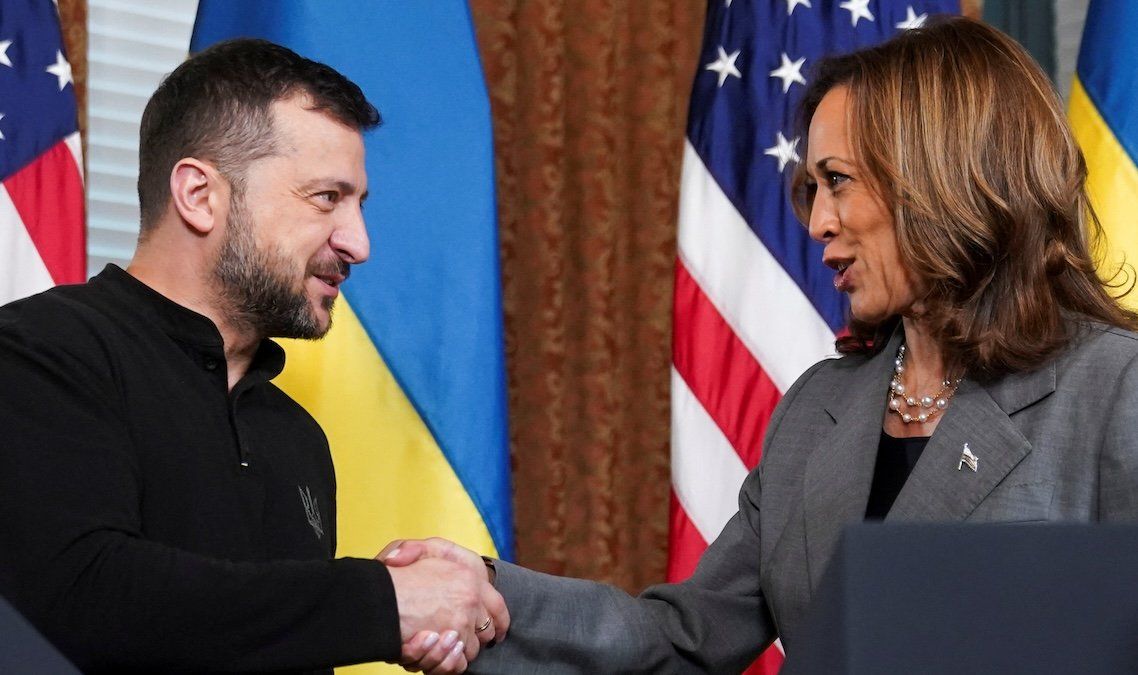Hard Numbers: US sends billions to Ukraine, Poland’s PM takes aim at beavers, NYC adopts new tool to battle rats, Japan finds longtime death row inmate innocent
Democratic presidential nominee and U.S. Vice President Kamala Harris shakes hands with Ukraine's President Volodymyr Zelensky, as they meet in the Vice President's Ceremonial Office in the Eisenhower Executive Office Building on the White House campus in Washington, on Sept. 26, 2024.
120,000: You’ve heard of the war on drugs, the war on poverty, the war on terror. But what about the war on beavers? Polish Prime Minister Donald Tusk is publicly blaming the country’s 120,000 beavers for exacerbating the deadly floods that battered central Europe and killed at least 16. Tusk called on Poles to “do whatever” to protect dikes, after saying beaver dams can damage riverbanks and weaken levees. “Beaver experts” (yes, they’re a thing) say that only a small percentage are problematic and that their dams can actually help slow river flows.
12: Speaking of a war on rodents, New York City is getting a new tool for its war on rats (a war it’s always losing). The city council passed a bill introducing rat contraceptives in a 12-month pilot problem. The bill’s sponsor, Council Member Shaun Abreu, says, “We can’t poison our way out of the rat problem, but we can certainly do a lot of damage trying.”
46: The world’s longest-serving death row inmate — Japan’s Iwao Hakamada — was acquitted after decades in solitary confinement for the alleged murders of his boss, the man’s wife, and their children. After 46 years of living on death row, he was freed in 2014 and granted a retrial. That trial has now proven that investigators fabricated the original evidence used against him. Japan and the United States are the only members of the G7 who still use the death penalty.